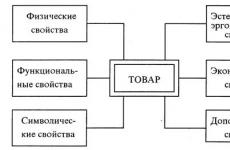Winter pregnancy pros and cons. Cons of winter conception
Winter is not the best time for conception, according to many. During this period, the level of prolactin in the female body rises - a hormone that suppresses sexual desire and inhibits the work of the ovaries. Because of this, egg maturation occurs less frequently in winter than at other times of the year. And yet, there are no fewer children conceived in winter than spring or summer ones. What to expect from a pregnancy that began in winter? Benefits of winter conception
If women's sexual desire is suppressed in winter, then the cold season does not affect the male libido in any way. Moreover, American scientists believe that childless couples should try their luck in winter - under the influence of cold in the male body, sperm production improves. And the quality of sperm improves, so the chances of conceiving a healthy child during this period increase dramatically. The second trimester of pregnancy falls in the spring - a period of emotional upsurge and the appearance of the first greenery. However, this does not mean that the expectant mother should refuse to take multivitamin preparations. Vitamin-mineral complex for pregnant women is best taken throughout all three trimesters. The third trimester is in the summer, so there is no need to wear heavy clothes. Light dresses and open sandals for plump legs - what could be better in the last months of pregnancy? Pregnancy, which occurred in the winter season, ends with childbirth in early autumn. And this means that mom and baby have a large selection of vegetables and fruits at their disposal. Eating all these benefits, a woman will easily improve the quality of her milk, supplying the baby with all the necessary vitamins, minerals, micro and macro elements. Childbirth and the first months of a child's life fall at the beginning of autumn - the most fertile time of the year, when the baby is not too hot, but not too cold. Viral infections during this period are not yet expected, which means that nothing can interfere with walks in the fresh air. Cons of winter conception
The main disadvantage is that the first trimester of pregnancy falls on the most unfavorable period in the epidemiological plan. But in the first three months of intrauterine development, the embryo is extremely vulnerable. The placental barrier has not yet been formed, and the unborn child is absolutely defenseless against viral infections. The expectant mother should understand this and take all precautions: wear a gauze bandage when coming from the street, wash hands with soap and water, use oxolin ointment and avoid contact with people who are sneezing and coughing. The second trimester falls on early spring, which still cannot please us with vitamins. Sauerkraut will help to correct the situation (there are leftovers of vitamin C in it), carrot and apple fresh juices, citrus fruits, and, of course, green onions, dill or parsley, which can be grown on your windowsill. Given that the third trimester of pregnancy falls at the height of summer, do not forget about the edema that annoys a plump woman in the heat (the growing uterus puts pressure on the kidneys and veins, worsening the outflow of fluid from the body). That is why it is so important to avoid exposure to the open sun from 11 am to 5 pm, try to drink no more than 1.5 liters of liquid per day and, if possible, reduce swelling of the legs by throwing them to a height of 50 cm during rest. English scientists noticed that autumn children are not in a hurry to be born, and the births scheduled for the fall are often late. Scientists cannot yet explain this phenomenon, but there is an assumption: this trend is associated with natural biorhythms that force our body to slow down its vital activity. However, overbearing a child can also be associated with a sedentary lifestyle, to which expectant mothers switch with the onset of the rainy season. That's why, while preparing for childbirth, do not forget about physical activity, walk in any weather or do minimal physical activity at home.
In this article, we will consider the pros and cons of pregnancy in the winter, and also talk about the features of bearing a child in the winter season.
Many women would prefer to give birth in the warm season. There are many reasons for this. For example, in winter it is very cold and you have to wear a lot of warm clothes. Moreover, there are dangers such as ice or a cold. But winter also has advantages that some women, planning a pregnancy, carry childbirth to the winter months. The question arises: what good can be in giving birth in the cold season?
First of all, all expectant mothers suffer from the heat in summer. After all, they have to protect the body from the sun's rays. In addition, they are constantly out of breath. When the last one approaches gestational age, women are tormented to such an extent that they almost never leave the room, which has air conditioning. Winter is much easier. Indeed, at this time it is more pleasant to take walks and breathe fresh, frosty air.
In addition, during pregnancy, women practically do not freeze. After all, the metabolic processes in their body proceed much faster. It should be noted that the surrounding nature is in a peaceful, calm state. Therefore, some expectant mothers say that winter regularity is much closer to their emotional state than an active, hectic summer.
If the birth falls on the cold season, everything possible must be done to avoid dangers.
In winter, it is easy to get sick with a cold, sore throat, flu, and any other illness. How to avoid it?
- If possible, avoid going to places where there are a lot of people
- Do not ride public transport
- Have a gauze bandage with you in case you need to talk to the patient.
- Take all preventive measures. For example, use folk remedies or use nasal ointments.
- Ventilate the apartment regularly
What can you say about ice? It poses a great danger to pregnant women. You must remember that on the street you are required to concentrate and be careful. If the road is very slippery, it is advisable to stay at home. Remember that shoes should be on a non-slip base and without a heel. Ask friends or relatives to accompany you on walks.
Due to the fact that daylight hours are very short in winter, and family members spend all daylight hours at work, you have little opportunity to take a walk. This is very bad, because the skin in the sun produces vitamin D, which you need. However, you should still be outdoors whenever possible. Ask your husband to walk with you before work.
In winter, the lack of vitamins is especially acute. Now this problem is solved very simply, because special vitamin complexes for expectant mothers have appeared. You must remember only one danger. Overdose must be avoided. After all, modern industry artificially fortifies everything. Remember that during the period of taking a vitamin preparation, less fortified foods should be included in your diet.
If you are planning a pregnancy, then you probably thought more than once - at what time of the year it is better to conceive a child, so that it would be easier to bear it, and was born then, when you prefer it. We suggest discussing the role of seasonality in pregnancy in more detail.
Conception in summer - childbirth in spring
pros
The abundance of fruits and vegetables in a natural way "vitaminizes" the body of the expectant mother. Great start to pregnancy!
An abundance of positive emotions, bright colors and vacation impressions. In other words - a wonderful psychological attitude, which is the best way to promote an easy pregnancy and no less easy childbirth.
Minuses
Childbirth will take place in the spring, the period when the body suffers most from beriberi. In the same meager conditions for vitamins, you will have to start breastfeeding.
The last trimester of pregnancy will take place in a rather traumatic period: ice and slush increase the risk of falls.
Conception in the fall - childbirth in the summer

pros
In autumn, a sufficient amount of vitamins accumulates in the body, and just before childbirth, you will have time to replenish the vitamin balance with a new crop of berries, fruits and vegetables.
During lactation, you will not need early complementary foods: the baby will get only the best from breast milk.
Minuses
The first trimester will have an unfavorable period associated with frequent colds and diseases. The fetus may be vulnerable to infectious influences.
If the birth occurs in the middle of summer or later, you will carry the baby in hot weather. Stuffiness and high air temperature can provoke intoxication (instead of being excreted from the body, harmful toxins can enter the bloodstream). You will also have to monitor the regular replenishment of the water balance, otherwise you can “catch” dehydration.
Conception in winter - childbirth in autumn

pros
American scientists have found that in the cold season men improve sperm production, and the quality of sperm is also much higher in winter.
The third trimester will be easy and carefree: the hot season will bring a lot of vitamins and save you from wearing warm and heavy clothes.
Minuses
In the first trimester of pregnancy, you will have to pay special attention to your health - the off-season, especially winter-spring, will bring beriberi and colds.
The main scourge of almost all pregnant women is swelling of the legs, especially in the later stages. Therefore, summer, when the fetus is already large enough, will bring such health troubles.
When the baby is born and will need daily walks, it will most likely be cool outside - autumn, the first rains, and then ice.
Conception in spring - childbirth in winter

pros
A very favorable time for conception, when nature blossoms, and you are in a great mood. The chances of getting pregnant in the spring are very high.
Most of the pregnancy will take place in the warm season.
When the third trimester comes, the daylight hours will become shorter, and enough melatonin can be produced in your body (and, as you know, it is produced at night and "helps" bear a child).
Minuses
The last trimester is the peak of bad weather, slush and the first frosts. This increases the risk of injury.
Heavy winter clothing will somewhat complicate the bearing of the fetus in the last months.
The peak of influenza and acute respiratory infections will occur just in the prenatal period.
As you can see, each season has its pros and cons. When exactly to get pregnant is up to you. And for sure, it is not so important when the conception occurs, it is important that the pregnancy proceeds without complications, and the little miracle is born healthy and happy.
A woman planning to give birth to a child often has to think about which of the seasons of the year is the most favorable for conception, in which months pregnancy and childbirth are best tolerated?
Experts believe that there is no season that would be ideal for pregnancy in everything, moreover, the well-being of its course will largely depend on the individual preferences of the woman, her well-being and some features of her body. Therefore, it is easier for someone to endure pregnancy in the summer, others feel much better during pregnancy in the winter. Pros and cons can be found in every season.
Benefits of winter pregnancy
First, it should be noted that scientists have long been observing some features of female fertility, which can sometimes depend on the season of the year and climatic conditions.
In winter, most women experience a decrease in libido, they become less active under the influence of the hormone melatonin, which is produced in large quantities in the cold months of the year.
At the same time, according to American experts, winter is one of the most favorable seasons for conception, since at this time men produce sperm better. The chance of giving birth to a healthy and strong baby increases significantly.
Secondly, there are some other advantages of winter pregnancy:
- Saving money. If you conceive a child in winter, childbirth will most likely occur at the end of the summer season, which will avoid spending on expensive outerwear for pregnant women.
- Positive mental attitude. The most “difficult” period of pregnancy will fall in the spring, when there will be much more sun and light, which will allow you to psychologically tune in to positive emotions.
- Favorable weather for walking. During the third trimester, when summer comes, a pregnant woman will have more opportunities to spend her maternity leave in the fresh air, going out into nature, which will positively affect her well-being and health.
- Ability to avoid overburdening . The time of childbirth will fall on the warm season, when it will not be necessary to wear heavy clothes, which can become an additional and undesirable burden on the spine during the last trimester.
Cons of winter pregnancy
During the cold season, respiratory viral diseases become aggravated, the immune system noticeably weakens, which increases the risk of getting sick or catching a cold. Influenza and SARS viruses are a threat to pregnancy and the unborn child.
An illness in the early stages can cause a miscarriage or affect the development of fetal pathologies. In addition, such diseases during pregnancy are usually more difficult to tolerate, and not all conventional drugs can be used for treatment, since many of them are prohibited for pregnant women.
During winter pregnancy, a woman will have to constantly be vigilant, using all possible measures to prevent colds, observe hygiene more often, and radically change the nutrition system to maintain immunity.
If the third trimester falls in the summer, you will need to avoid long walks in the open sun, as the intense solar ultraviolet can adversely affect the fetus.






